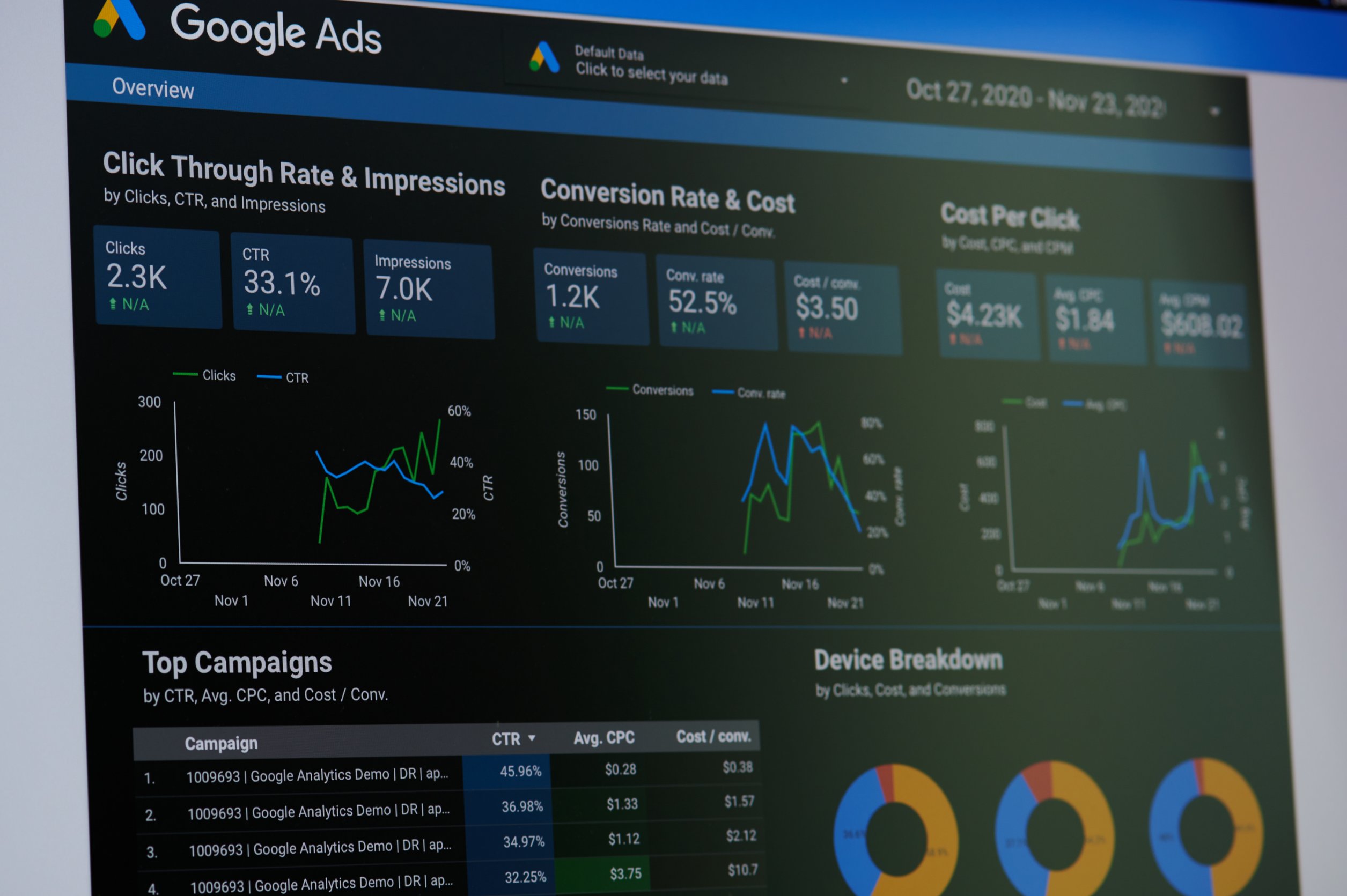What is PPC?
PPC (Pay-Per-Click) is an online advertising model in which advertisers pay a fee each time one of their ads is clicked. It is a way to buy traffic to your website, rather than earning it organically through SEO. Advertisers bid on specific keywords or search terms relevant to their target audience, and when a user searches for those terms, the ads appear at the top or bottom of the search engine results page (SERP). The advertiser pays the search engine a predetermined amount every time a user clicks on their ad, hence the name pay-per-click. PPC advertising can also be used on social media platforms, display advertising networks, and other online ad networks. The goal of PPC advertising is to drive targeted traffic to a website and increase conversions or sales.
The 7 main aspects of PPC are:
- Ad Campaigns: PPC campaigns are created in advertising platforms such as Google Ads, Bing Ads, or social media platforms like Facebook and LinkedIn. Advertisers define the budget, targeting options, and ad formats to reach their target audience.
- Ad Groups: Ad groups organize ads around a common theme, such as a particular product or service. Advertisers can use ad groups to group together related keywords, ad text, and landing pages.
- Keywords: Keywords are the search terms or phrases that advertisers bid on in order to show their ads when someone searches for those terms. Advertisers can use different match types, like exact match, phrase match, or broad match, to control when their ads show.
- Ad Text: Ad text is the copy that appears in the ad itself. Advertisers need to write compelling ad text that includes relevant keywords and a strong call-to-action to encourage clicks.
- Landing Pages: Landing pages are the web pages that users are directed to after clicking on an ad. Advertisers need to create landing pages that are relevant to the ad text and provide a good user experience to encourage conversions.
- Bidding: Bidding is the process of setting the maximum amount an advertiser is willing to pay for each click on their ad. The actual cost per click depends on the competition for the keyword and the advertiser's quality score.
- Quality Score: Quality score is a metric that measures the relevance and quality of an advertiser's ads, keywords, and landing pages. Advertisers with higher quality scores can achieve better ad positions and lower costs per click.
By following these steps, you can create a successful PPC campaign that will help you to reach your business goals.
Here are some additional tips for creating a successful PPC campaign:
- Use negative keywords. Negative keywords are words or phrases that you don't want your ads to show up for. For example, if you sell shoes, you might want to add the negative keyword "free" to your campaign so that your ads don't show up when people search for "free shoes."
- Target your ads. You can target your ads to specific demographics, interests, and even locations. This will help you to ensure that your ads are seen by the people who are most likely to be interested in what you have to offer.
- Track your results. As mentioned above, it's important to track the results of your PPC campaign so that you can see what's working and what's not. This information can help you to improve your campaign and get better results.
PPC can be an effective way to drive traffic and sales for your business, but it's important to have a well-planned strategy and carefully manage your campaigns to ensure a positive ROI.
Talk with a Google certified PPC specialist today and together, we can build your business an effective PPC campaign.
